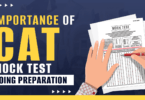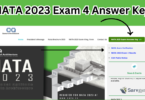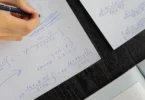There’s no chance that you’ll be able to avoid writing essays in college. When writing essays, you develop critical thinking, problem-solving, investigation, communication, technical, and a variety of lateral skills that come in handy in college and beyond. Therefore, professors assign their students tons of essays and other types of academic papers to make sure they polish their essential skills and absorb necessary knowledge.
There’s no universal recipe to effective writing, of course. Each student develops their own approach towards becoming a successful writer, adopts workable writing techniques and strategies that help them improve their writing style over time. We bet you’re also dreaming of high grades, academic honors, and accolades, which, needless to say, are hard to attain if you cannot create strong essays. We sincerely hope that our guide will help you get started on your way towards successful college essays. Still, if you happen to experience difficulty creating an essay or find yourself doubting your writing capabilities or level of expertise required to write this or that paper, you can always rely on professional essay writing services that can write an essay for you.
What Makes a Good Essay?
What is the first thing that comes to your mind when you think of a “good essay”? Is it a strong debatable thesis? Effective attention grabber? Smooth transitions between paragraphs? Sufficient evidence wherewith you back up your findings and arguments?
As you might have guessed, it’s a complex of factors that make up a good academic paper, and it’s about time we learned more about them.
At first, let’s figure out what the main purpose of every essay is. Needless to say, as writers we all pursue one and the same goal – to convince the audience to believe your position, accept your logic and evidence. It’s also very important that your paper thoroughly answer a specific question or task.
As you know, thesis is a heart of your essay which is both the answer to the question and interpretation of facts and evidence. Your thesis also can be compared to a map that shows the direction of your paper and thus helps you orient your readers.
Finally, you should make it a rule to always use only credible, peer-reviewed, relevant sources published in the past 5-10 years (it depends on your subject, class, and specific requirements stipulated by your instructor.) All supporting evidence you use in your paper should be drawn from such reliable sources. Nevertheless, you need to take care to interpret and analyze the information and present your ideas and inferences. Note that the ability to critically evaluate and question even the most authoritative opinion is what distinguishes a good writer from the crowd.
Getting Started with Your Paper
They often joke that students and time managements are mutually exclusive notions. Still, if you want to become a successful writer capable of creating truly strong and effective papers, it’s critical that you get down to your essays as early as possible. Do not procrastinate. Putting an essay together overnight isn’t something that’s going to score you a good grade, much less help you assimilate new knowledge and improve your writing skills. Give yourself time to understand your essay prompt, research the questions, think over your writing strategy, and come up with a first draft.
Writing a Plan
Just before you start scoffing at our not so original tip, we want to note that your plan shouldn’t be sophisticated and long. A quick, preliminary outline will be just fine. It will help you guide your research, come up with a tentative thesis statement, and possibly, structure your preliminary thoughts and ideas you may subsequently use in your final draft. Note that your outline is provisional, which means that you may want or need to make changes to it at any point in your writing process to make your paper more convincing or stronger.
Researching a Topic
If you take care to comprehensively analyze the information available on your essay topic, chances are good you’ll manage to create a successful paper.
It’s common knowledge that academic writing relies heavily on the works of other authors who previously researched this or that topic and reached specific conclusions. Take your time to locate the literature that will come in handy in your writing process. Carefully research your topic will provide you sufficient knowledge and evidence you can you to back up your judgments and arguments.
Very often, students are provided lists of suggested readings that can help them with their research. Such a list can spare you the time and bother of scouring the Internet for relevant materials. So, take advantage of your list of the recommended literature and consult as many sources as possible. In case your instructor doesn’t provide you with recommended sources, you’ll need to locate helpful sources by yourself. It’s a good idea to visit your college library or take advantage of such scholarly databases as EBSCO, JSTOR, PubMed, or Google Scholar.
Writing the First Draft
Now that you have consulted multiple sources and your head is overflowing with worthy ideas, it’s about time you got down to your first draft. It may be messy, somewhat awkward, and “raw.” But as you go along, you’ll be editing and improving it.
You may do some freewriting. Jot down the ideas that come to your mind. It’s also a good idea to ask and answer the question which may arise during the writing process. Pay special attention to inconsistencies found in the articles you relied on to write your essay. Should you have any difficulty comprehending some aspects or ideas, be sure to consult more sources to get a better understanding of what perplexes your at this point or ask your instructor for clarifications.
Also, you should always be mindful of your main message. Don’t lose track of your main idea and let the entire essay revolve around it. Think of more claims or assertions you can make to enhance your argument. Make sure your main message and evidence are robust and relevant to your research topic. Should you have any doubts as to whether your ideas, assumptions, and arguments are strong enough, consider reviewing your draft and making necessary corrections to it.
Polishing your Draft
Once you have your preliminary draft written, you can proceed to polish it.
First, hone in on your introductory paragraph. Pick an appropriate attention grabber, provide some context or background for the problem you’re exploring, and then introduce your thesis statement.
Develop your main message in the subsequent paragraphs and use supporting evidence to substantiate your claims. Offer as many examples to illustrate your main points as possible. It’s also important that you rely on facts, not assumptions. Also, avoid appealing to the emotions of your audience lest you should undermine your credibility as a writer.
As for your conclusion, it shouldn’t merely restate your introduction paragraph. It’s crucial that it synthesizes and reflects your findings and ideas discussed throughout the paper. Furthermore, your conclusion needs to be thought-provoking and no less effective than your intro.
Final Word
Needless to say, essay writing can be daunting, not to mention challenging. Still, if you start paying more attention to it, you’ll be able to cultivate the essential skills and acquire much valuable experience you’ll be able to draw on in the future. Hope that our simple tips will help you become a more successful and efficient writer scoring the highest grades for all academic papers.








